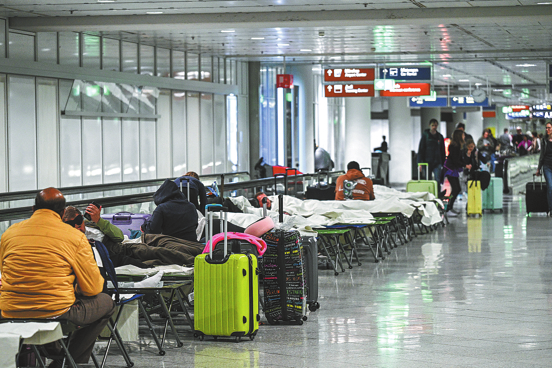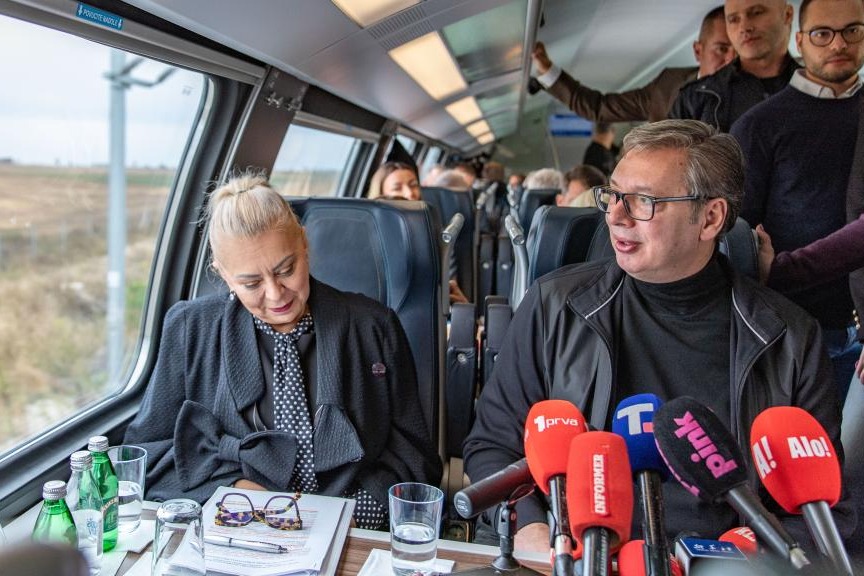Pressure on Macron rises as PM resigns
Lecornu steps down amid criticism by parties over formation of cabinet


France's new Prime Minister Sebastien Lecornu stepped down on Monday, just a day after unveiling his cabinet and under a month into the job.
His cabinet lineup announced on Sunday had immediately drawn criticism from across the political spectrum, notably his move to return former finance chief Bruno Le Maire to head the Defense Ministry.
Lecornu was French President Emmanuel Macron's 7th prime minister since 2022, and he had been tasked with forming a government able to navigate a divided parliament.
His cabinet was presented 26 days after his appointment and was viewed as an effort to secure cross-party backing and address political deadlock.
Lecornu blamed political parties' intransigence for his resignation in a public address on Monday morning, an hour after announcing he would step down.
"I was ready to compromise, but each political party wanted the other political party to adopt its entire program," he said.
"The conditions were not fulfilled for me to carry out my function as prime minister," Lecornu added, denouncing the "partisan appetites" of factions which he said had forced his resignation.
He said he spent weeks seeking a path forward with unions, social partners, and politicians across the spectrum, and argued that his pledge not to pass laws without a parliamentary vote marked a clear break with the past that should have won opposition support.
"It would take little for it to work," Lecornu added. "By being more selfless for many, by knowing how to show humility … One must always put one's country before one's party."
The far-right National Rally party leader Jordan Bardella called on Macron to dissolve the National Assembly following the resignation.
"Stability cannot be restored without a return to the polls and without the dissolution of the National Assembly," he said upon arriving at his party headquarters.
The Paris stock market slipped Monday on the back of the resignation news, plunging the country into further political turmoil, reported France 24.
French stocks were already down earlier after Lecornu had named Roland Lescure, a close ally of Macron, as finance minister.
Broad backlash
The largely unchanged cabinet he unveiled prompted a broad backlash across parties.
Earlier on Monday, before Lecornu's resignation was announced, conservative Bruno Retailleau — who had been reappointed as interior minister — had said the new government "does not reflect the promised break".
French Socialist Party leader Olivier Faure said his party would vote against the new government formed as it stood. Faure said: "At this current moment in time, I cannot see how the socialist party would not be in a position to vote against the government".
"The prevailing sentiment is one of dismay … The reality is that we are witnessing an unprecedented political crisis," he told France Inter radio.
Jean-Luc Melenchon, the de facto leader of the far left, said: "Elections for nothing and two motions of no confidence for nothing? This won't hold."
Analysts have noted the current political crisis stems from Macron's decision to call legislative elections in summer 2024, which produced a fragmented parliament where the far-right and hard-left wield influence — compounded by France's limited culture of coalition-building and consensus.
The next move rests with Macron, who must now decide how much longer these circumstances can continue. He has three options: appoint another prime minister, dissolve the National Assembly again, or resign.

































